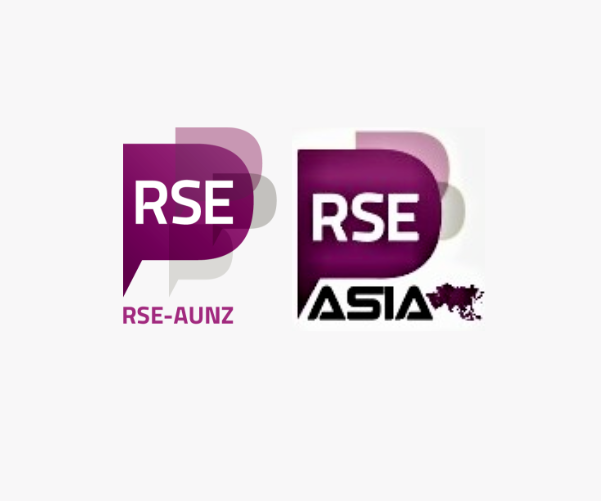Harsh Kalra
Indore, Madhya Pradesh, India
I began my IT career in 2011, working in Data Analytics. However, my life took a major turn in 2015 when I was diagnosed with Retinitis Pigmentosa, a condition that progressively took away my vision. This brought many challenges, both personally and professionally. It wasn’t easy to accept my disability, and transitioning from sighted to visually impaired took time and effort.
Despite these challenges, I didn’t give up. I pushed myself to find ways to live independently. Discovering assistive technologies like screen readers changed my life. They gave me hope and the confidence to continue my career just like anyone else.
I’ve earned several certifications, including the “Certified Professional in Accessibility Core Competencies”, “JAWS Certified 2024” and “NVDA Certified Expert”. I also completed a Digital Accessibility course from the Blind Institute of Technology (USA), gaining hands-on experience in accessibility testing.
I submitted my application for the Accessibility Fellowship for the RSE Asia Australia Unconference 2024 with the eagerness to learn new things and contribute my knowledge and understanding. I’m thrilled that my application was successful, and I was selected as an accessibility fellow for the event. I’m deeply grateful to Rowland Mosbergen for recognizing my potential and giving me this opportunity. His belief in my ability to add value to the event from an accessibility perspective means a lot to me.
Accessibility Insights Before the Event
To participate in the event, I utilized my laptop, which runs on Windows OS, along with the NVDA Screen Reader (Version: March 1, 2024) and Mozilla Firefox as my browser. This setup allowed me to assess the accessibility of the websites and materials prior to the event and also to navigate the event itself smoothly.
As I navigated the RSE event’ website using my screen reader, I was pleasantly surprised by the accessible elements already in place. Alt texts for all images, well-structured tables with properly defined headers, and meaningful hyperlink text made the website easy to navigate. However, while the website was user-friendly from my perspective, this doesn’t necessarily mean it fully complied with WCAG guidelines, as it wasn’t tested against every success criterion. The aim here was to evaluate real user experiences rather than strict compliance.
The event was hosted on Zoom, which is known for its accessibility features, such as live captions and keyboard navigation. Zoom’s Android mobile app is also accessible, which added to the convenience. The organizers ensured that participants received accessible email communications before the event, including detailed information with meaningful hyperlinks, event schedules, instructions for joining, access to Slack for communication, and accessible keynote presentations.
I did suggest a few improvements, such as
- Including a glossary for abbreviations like RSEAu and RSENZ, which can sound unclear when read aloud by a screen reader.
- When the accessible Google Docs were created and shared with me and another accessibility fellow, Sanchit, for review, I was able to read the content using my screen reader without any issues. However, Sanchit could not read anything, as the screen reader wasn’t reading out any of the document’s content for him. This issue occurs because, when accessing Google Docs for the first time with a screen reader, users need to manually enable screen reader support—something many users are unaware of, leading them to believe the document is inaccessible.
To enable screen reader support in Google Docs, there are two methods. On Windows, you can press Alt+Shift+T to open the Tools menu, then select Accessibility settings and check the option to turn on screen reader support by pressing the Tab key to move the focus to this option and pressing Spacebar on keyboard. Alternatively, you can use the keyboard shortcut Ctrl+Alt+Z to enable screen reader support directly when opening Google Docs for the first time, bypassing the need to navigate the Tools menu.
- Additionally, I recommended removing extra blank spaces and lines from documents to enhance readability for screen reader users, as screen readers tend to read them out as “blank”, which can be frustrating and disruptive for users. Fortunately, these suggestions were implemented before the accessible materials were distributed.
- To further improve accessibility, the Google Docs (accessible keynote presentations) were published to the web so that the links to the Google Docs provided in the email communication before the event appeared more like HTML pages. This format proved to be more accessible than sharing editable Google Documents.
Accessibility During the Event
The event featured live captions for spoken content, and participants were given the flexibility to engage through voice, text, or video, according to their individual needs. Slack was made available for networking, raising technical issues, and providing real-time assistance during the event. These measures significantly enhanced the accessibility of the event, creating an inclusive environment for all participants.
Accessibility After the Event
While the event itself was successful, I noticed that while a follow-up email was sent with a thank-you note to participants, it did not include a request for feedback on the accessibility of the event or suggestions for improvement. Additionally, a single email with links to event recordings in accessible formats (complete with captions and transcripts) would have been helpful.
It’s essential to continuously assess the accessibility of events, incorporating feedback and evolving best practices to ensure that future events are even more inclusive. Involving individuals with disabilities in the planning process is crucial to ensure their needs are met and improvements are made over time.
Final Thoughts
Overall, my experience at the RSE Asia Australia Unconference 2024 was incredibly positive. I had the chance to learn about a wide range of topics I wasn’t familiar with before, and I’m grateful for the opportunity to have been a part of it. I look forward to participating again next year if given the chance.
